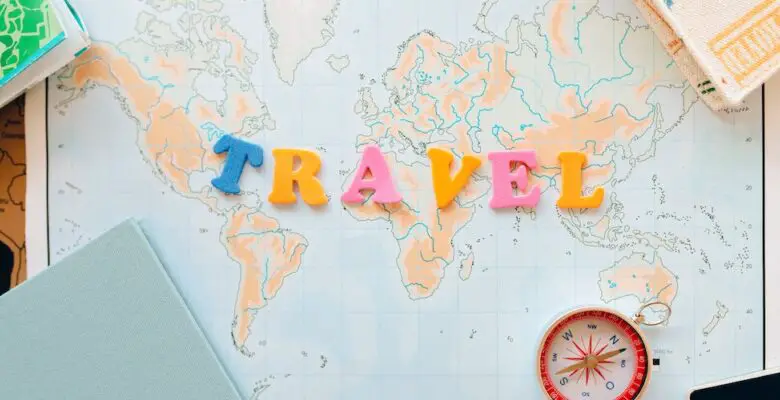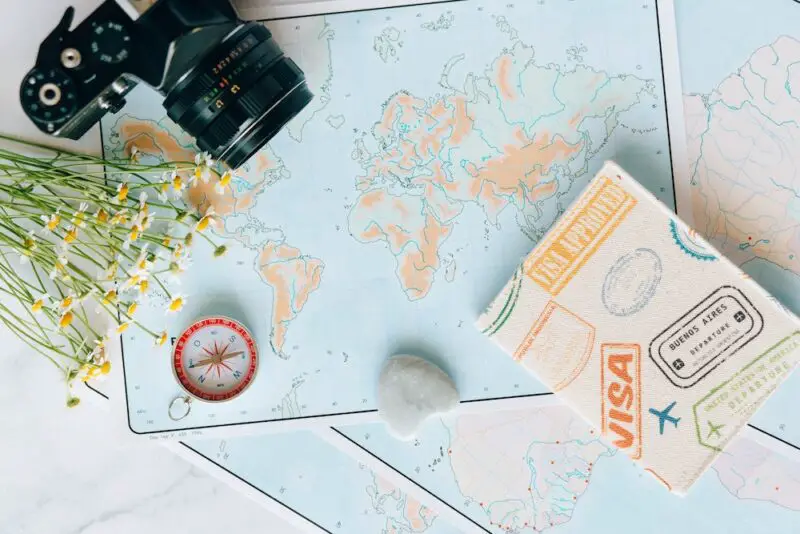
A disabled blogger’s accessible travel survival guide
Organising and planning an accessible holiday can be challenging and complex at times. Thankfully, award-winning disability travel blogger Carrie-Ann Lightley shares her top tips for surviving accessible travel.
Travelling as a wheelchair user can be stressful, worrying and sometimes disastrous. But it can also be exciting, empowering and absolutely wonderful.
There’s no fail-safe way to ensure everything goes to plan, but with a little extra care and attention, it is possible to survive through the bumps in the accessible travel road and thrive on the joy that the journey brings.
Right now, I’m researching my next holiday. That makes most people say, “Yay, holiday planning, how fun!”… No. It’s stressful, time-consuming, and more than once I’ve shut the laptop down in a fit of frustration and consoled myself with chocolate (too many times, actually – beach-ready body mine is not.)
I’m a difficult customer when it comes to travel. I’ve spent years working in the industry and heard a million horror stories of accessible travel gone wrong. I know exactly what I want out of this holiday, and balancing that against what I need means that I’m struggling to find the perfect hotel.
But I’ll persevere, possibly make a couple of compromises, and eventually find the right place for a week of autumn sunshine.
And then the fun will really begin! I’ll need to make sure that I get an accessible room that actually is accessible, that the airline will assist me and not obliterate my wheelchair, that I can get travel insurance that doesn’t double the cost of my holiday… etc., etc.
So I thought I’d share my tips for surviving wheelchair-accessible travel, and ultimately getting the most out of your holiday.
Research, research and research your accessible holiday


Information is power. If you only do one of the things mentioned in this post, make it research. Yes, it can be frustrating, so arm yourself with a treat – a glass of wine, a bar of chocolate (family-sized, in my case) and spend some time web searching, guidebook reading and asking for recommendations.
I use a combination of specialist accessible travel websites, TripAdvisor, Facebook groups and good old Google.
I’ll start with a destination or two in mind, ask for recommendations from friends and on Facebook groups, see which hotels are noted as being accessible in that area. I then check the hotel’s actual website and/or a listing site to see if it goes into detail on accessibility to make sure it broadly meets my requirements, and then cross-reference with TripAdvisor.
From there I’ll build a shortlist, and contact the hotels directly to confirm accessibility in writing and photographs – this is very important as things can get lost in translation if you’re travelling internationally.
Then it’s about checking the nice-to-haves – is it close to the town/restaurants/beaches, do I like the look of the dining options, can I get a spa treatment?! Ok, I’m high maintenance.
And then I repeat the process looking for transport options, things to do/places to visit, restaurants and most importantly cocktail bars. TripAdvisor’s forums and Facebook groups like the Accessible Travel Club are invaluable for this kind of local information.
If all else fails, simple Google searches like ‘wheelchair accessible hotel in…’ ‘mobility equipment hire in…’ ‘wheelchair accessible airport transfer in…’ usually yield some results.
If the thought of spending hours doing your own research fills you with dread, there are websites and companies out there that can help.
If you’re travelling in the UK, AccessAble lists loads of hotels and places to visit that have all been assessed in person (yes I work for AccessAble but honestly, I don’t know of any other company that has quality, factual accessibility guides to so many venues – 125,000+!)
For international travel, there are a few specialist tour operators that I’ve worked with over the years who really do know their stuff. You might pay a little bit more to book through them, but they’ll save you hours and give you the extra confidence that comes with knowing you’ve used an expert.
Accessible Travel and Leisure, Enable Holidays, DisabledHolidays.com and Limitless Travel are all doing amazing things.
Document everything for your holiday
If you’ve gone through the painstaking hours of research, make it count and keep written and photographic evidence of everything you’ve arranged. As well as your standard travel tickets and confirmations, have copies of any emails with hotels, transport operators, equipment hire providers and tour companies.
Have a copy of your wheelchair manual – and if you’re travelling by air with a powerchair or add-on, documentation to say that the battery is flight-safe. I also take a copy of my medication prescription, and a letter from my GP stating that I need a particular seat on the plane.
I book airport assistance well in advance, and confirm all of this at the time of booking, but find that having a written backup gives me peace of mind – as well as something to fall back on if arrangements don’t go to plan.
For more advice on flying, read my top tips for accessible air travel.
I have been known to travel with an enormous folder full of paperwork – but if you can keep it all on a smartphone or tablet it’s more manageable – and you’ll save your precious hand luggage weight for duty-free essentials.
Ensure you’re insured
I know that travel insurance for those of us with pre-existing conditions can be hideously expensive. It’s frustrating to have to pay extra to declare a condition that may actually have no bearing on your ability to travel.
But I always ask myself, can I afford to lose the cost of my holiday if I have to cancel? Can I afford to replace my wheelchair if it gets damaged beyond repair? I definitely can’t.
So I have an annual wheelchair insurance policy that includes travel, and a separate travel insurance policy on which I declare my Cerebral Palsy.
Specialist insurers dedicated to covering pre-existing conditions are usually cheaper, and some of the comparison sites now offer the ability to search for inclusive insurers.


Protect your disability equipment
Up until last year, I travelled with a bog-standard NHS-provided folding manual wheelchair and, to be honest, I wasn’t overly concerned about it getting damaged. Maybe I was just lucky but it had never happened to me. Then I bought my first privately funded chair and power pack, and, oh – the anxiety!
I bought a top-of-the-range hard shell suitcase for the power pack, covered it in fragile stickers and took literally everything detachable off the chair and onto the plane with me. I also photograph my chair before the flight, as evidence in case there is any damage when it comes back to me.
If the worst happens, make sure you report any damage before you leave the airport, and ask the airline to provide a repair or a replacement rental wheelchair.
Allow time for delays
Sometimes we all have to travel on tight schedules, but if you can, allow time in your itinerary for disruptions.
My last holiday was a 3-night break, with a packed schedule of train travel and places to visit at the destination. Add in a two-hour flight delay and the resulting exhaustion from all that waiting around, and it meant I had to cancel part of the trip.
I was really disappointed (and emotional, I have been known to sulk!) so next time I’ll make sure I plan at least a few hours of downtime just in case.
If things do go wrong, give yourself a break
I said it at the beginning of this post – there’s no way to guarantee everything will go to plan. On one of our annual wedding anniversary trips, Darren and I faced a flight delay, a very inaccessible ‘accessible’ room, a missed train and a day of torrential rain. And I was so mad at myself; accessible travel is my job, I’m supposed to know about this stuff!
But then I reminded myself that I was in a beautiful place that I’d never been to before, with new experiences just waiting to be discovered. Perfect or not, we still had an amazing time and have memories of yet another adventure, good and bad.
By Carrie-Ann Lightley
Read more of Carrie-Ann’s articles by visiting her blog. You can also follow her on Twitter, Facebook and Instagram.
More on Disability Horizons…